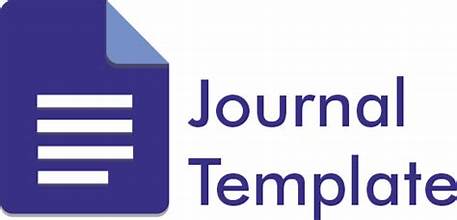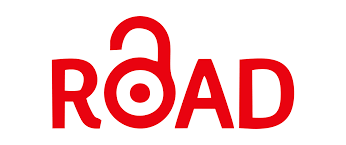DISCUSSION ON HUMAN SECURITY (HEALTH SECURITY) OF THE COVID-19 PANDEMIC IN INDONESIA: BIBLIOMETRIC ANALYSIS AND VISUALIZATION ARTICLE INDEXED IN SCOPUS
DOI:
https://doi.org/10.69745/ijsspp.v1i3.39Abstract
This research was conducted to look at the human security disaster management of the Covid-19 pandemic in Indonesia which is indexed by Scopus. Referring to the United Nations Development Program (UNDP) statement regarding human security, there are seven areas, namely: Regarding the health security sector, the environmental security sector, the food security sector, the economic security sector, the individual security sector, the community security sector, and the political security sector. Of the seven areas, one of them is the problem of health resilience, and the Covid-19 Pandemic is included in the category of health security. UNDP defines health insurance as protection from disease and unhealthy lifestyles, which threaten inadequate health services, new and recurring diseases including epidemics, and pandemics, malnutrition, and unsafe lifestyles. Until this article was written, there has been no research that has seen that the Covid-19 Pandemic is part of a human security disaster, which is more specifically included in the health security category. In this study, data was taken online through the Scopus database which was then analyzed using the VOSviewer bibliometric visualization. The findings in this study are that the human security disaster during the Covid-19 pandemic is a problem in the field of human health security which is included in the human security category according to UNDP. Until now there has not been much research conducted by academics and researchers from Indonesia, because they only found 25 article documents
References
Abdullah, I. (2020). COVID-19. threat and fear in Indonesia. Trauma Theory Res. Pract. Policy, 12(5), 488–490. https://doi.org/10.1037/tra0000878
Airlangga, E., & Akrim, A. (2020). Learning from COVID-19, will this pandemic reappear: a reflection for Indonesian children future. Syst. Rev. Pharm, 11(6), 1008–1015. https://doi.org/10. 31838/srp.2020.6.144
Aldila, D., Ndii, M. Z., & Samiadji, B. . (2020). Optimal control of COVID-19 eradication program in Indonesia under the effect of community awareness. Math. Biosci. Eng., 17(6), 6355–6389. https://doi.org/10.3934/mbe.2020335
An, N., Yao, Q., & Shen, Q. (2022). A Review of Human Settlement Research on Climate Change Response under Carbon-Oriented: Literature Characteristics, Progress, and Trends and Trends. Buildings, 12(1614), 1–2. https://doi.org/10.3390/
Angeline, M., Safitri, Y., & Lutfhia, A. (2020). Can the damage be undone? Analyzing misinformation during the COVID-19 outbreak in Indonesia. In: Proceedings of 2020 International Conference on Information Management and Technology, 360–364. https://doi.org/10.1109/ICIMTech50083.2020.9211124
Ansori, A. N. ., Kharisma, V. D., Muttaqin, S. S., & Antonius, Y. (2020). A genetic variant of SARS-CoV-2 isolates in Indonesia: spike glycoprotein gene. J. Pure Appl. Microbiol., 14(1), 971–978. https://doi.org/10.22207/JPAM.14.SPL1.35
Azikin, A., Karno, Nurhascaryani, P., Fitriani, Suhaeti, & Cahyono, Y. (2020). Indonesian government telematics in Covid-19 pandemic handling. European Journal of Molecular and Clinical Medicine, 7(7), 125–133.
Bellia, C., Bacarella, S., & Ingrassia, M. (2022). Interactions between Street Food and Food Safety Topics in the Scientific Literature—A Bibliometric Analysis with Science Mapping. Foods, 11(6). https://doi.org/10.3390/foods11060789
Biemans, W., Griffin, A., & Moenaert, R. (2007). Twenty years of the Journal of Product Innovation Management: History, participants, and knowledge stock and flows. Journal of Product Innovation Management, 24(3), 193–213. https://doi.org/10.1111/j.1540-5885.2007.00245.x
Borgman, CL and Furner, J. (2002). Scientific and bibliometric communication. Annual Review OfInformation Science and Technology, 36(1).
Caraka, R. E., Lee, Y., Kurniawan, R., Herliansyah, R., Kaban, P. A., Nasution, B. I., Gio, P. U., Chen, R. C., Toharudin, T., & Pardamean, B. (2020). Impact of COVID-19 large-scale restriction on environment and economy in Indonesia. Global Journal of Environmental Science and Management, 6(Special Issue), 65–84. https://doi.org/10.22034/GJESM.2019.06.SI.07
Collins C. Okolie dan Abiodun A. Ogundeji. (2022). Effect of COVID-19 on agricultural production and food security: A scientometric analysis. HUMANITIES AND SOCIAL SCIENCES COMMUNICATIONS. https://doi.org/10.1057/s41599-022-01080-0
Donthu, N., Kumar, S., & Pattnaik, D. (2020). Forty-five years of business research journals: a bibliometric analysis. Journal of Business Research, 109, 1–14.
Falefi, R., Purwoko, A., & Susilawati. (2020). Impact of COVID- 19 ’ s Pandemic on the Economy of Indonesia. Budapest International Research and Critics Institute-Journal, 3(2), 1147–1156.
Glanzel, W., & Moed, H. F. (2002). Journal Impact Measure in Bibliometric Research: A State-of-the-art Report. Scientometrics, 53(2), 171–193.
Ing, E. B., Xu, Q. A., Salimi, A., & Torun, N. (2020). Physician deaths from corona virus (COVID-19) disease. Occupational Medicine, 70(5), 370–374. https://doi.org/10.1093/occmed/kqaa088
Merig´Hai, J., Mulet-Forteza, C., Valencia, C., & Lew, A. (2019). Twenty years of tourism geography: a bibliometric overview. Tourism Geography, 21(5), 881–910.
Moed, HF, Burger, WJM, Frankfort, J., & Van Raan, A. (1985). Use of bibliometric data for measuring university research performance. Research Policy, 14(3), 131–149.
Mongeon, P., & Paul-Hus, A. (2016). Coverage of web science journals and Scopus: Comparative analysis". Scientometrics, 106(1), 213–228.
Mulet-Forteza, C., Martorell-Cunill, O., Merig´o, J., Genovart-Balaguer, J., & Mauleon-Mendez, E. (2018). Twenty-five years of travel and tourism marketing journals: a bibliometric ranking. Journal of Travel and Tourism Marketing, 35(9), 1201–1221.
Mulet-Forteza, C., Salv., S., Monserrat, S., & Amores. (2020). Pure and applied geophysics: a bibliometric overview. 177(2), 531–570.
Nurmandi, S., Achmad, & Sulistyaningsih, T. (2020). Analysis of Government Official Twitters during the Covid-19 Crisis in Indonesia Analysis of Government Official Twitters during the Covid-19 Crisis in Indonesia. January.
Pritchard, A. (1969). Statistical bibliography or bibliometrics. The Journal of Documentation, 25(4), 338–349.
Qodir, Z., Effendi, G. N., Jubba, H., Yogyakarta, U. M., Nurmandi, A., Yogyakarta, U. M., Hidayati, M., & Yogyakarta, U. M. (2020). COVID-19 AND CHAOS IN INDONESIA SOCIAL-POLITICAL. Talent Dev. Exellence, 12(1), 4629–4642.
Raan, T. Van. (2014). Fatal Attraction : Conceptual and methodological problems in the ranking of universities by bibliometric methods. Scientometrics, 62(1), 133–143. https://doi.org/10.1007/s11192-005-0008-6
Ramos-Rodrígue, AR, & Ruíz-Navarro, J. (2004). Changes in the intellectual structure of strategic management research: a bibliometric study of strategic management journals 1980-2000. Journal of Strategic Management, 25(10), 981–1004.
UNDP. (1994). Human Security. United Nations Development Programme., 24–34.
Valenzuela-Fernandez, L., Merig´Hai, JM, Lichtenthal, JD dan Nicolas, C. (2019). Bibliometrik analisis 25 tahun pertama dari jurnal business-to-business marketing. Journal of Business-to-Business Marketing. Vol. 26. No. 1, 75-94.
Vishwakarma, P., & Mukherjee, S. (2019). Forty-three years of tourism leisure research journey: a bibliometric analysis. Tourism Recreation Research, 44(4), 403–418.
Yuliana. (2020). Coronavirus disease (Covid-19). A literature review. Wellness Healthy Mag, 2(1187–192).
Zupic, & Cˇater, T. (2015). Bibliometric methods in management and organization. Organizational Research Methods, 18(3), 429–472.












